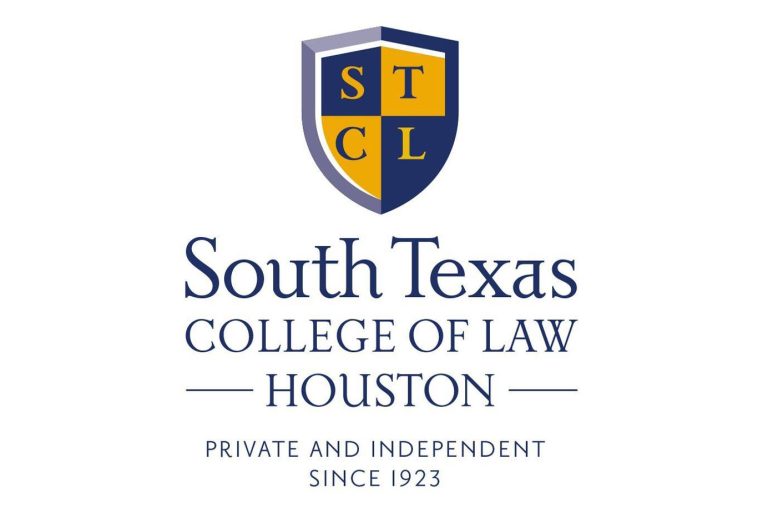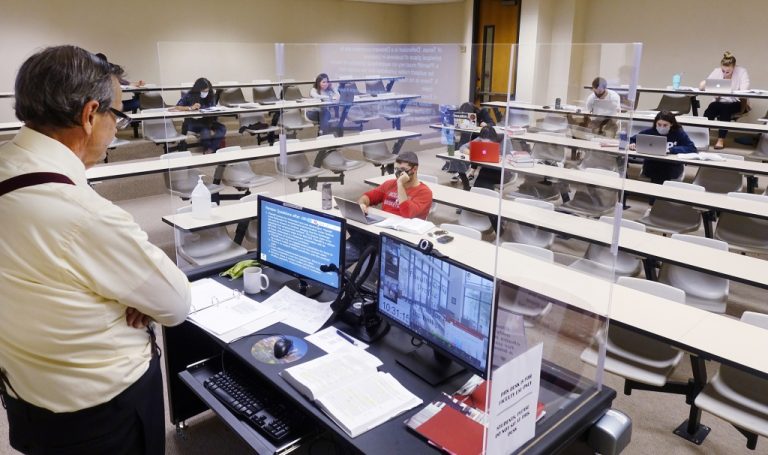Legal negotiations can be challenging. Negotiations often require attorneys to adapt their communication styles, seek to understand an otherwise unknown opponent, and compromise while meeting a client’s needs. Negotiation skills also have become increasingly important in today’s legal field. With only two percent of court cases going to trial, most cases are settled out of court through mediation and other methods of Alternative Dispute Resolution (ADR).
So how do law schools create an ideal environment for students to refine these valuable skills in a lifelike training environment? South Texas College of Law Houston has developed a promising method with its Inter-School Negotiation Practicum. Held once each semester, the practicum pairs students from different schools—sometimes in different time zones—and asks them to use only virtual means of communication while negotiating two sides of an actual legal case.
Founded by Professor Debra Berman, director of the Frank Evans Center for Conflict Resolution, the practicum is among several robust and innovative ADR offerings at South Texas—earning the program a No. 19 national ranking from U.S. News & World Report. Berman says the strength of the practicum is its simulation of real-life negotiation circumstances.
“In the real world, lawyers are negotiating over the phone, email, or video, not meeting in big conference rooms. It’s so important to give students as much practical experience with those technologies as possible,” she said.
A more authentic legal experience
It was Berman’s background in ADR competitions that first inspired the practicum. Although engaging and fun, typical competitions don’t give students enough time to fully experience the negotiation process, “which can take weeks, months, even years—not an hour.”
Held once a semester since 2019, the month-long cohort has already welcomed over 1,400 participants from 38 law schools. The takeaway from all those students is mostly the same, the practicum offers a more detailed simulation.
“I think it was very valuable to practice my negotiation skills in a ‘real-life’ setting. More importantly, I think as a law student it is incredibly valuable to expand your network and connect with others,” said Randi Rubenstein, a 2L at the University of Maryland Francis King Carey School of Law.
“The practicum felt more realistic than mock negotiations with classmates because I did not know my negotiation partner. Classmates often hold back in a mock negotiation to avoid embarrassing one another, but in the practicum, as in most real-world negotiations, my partner and I negotiated zealously, without fear of being judged by our peers,” added Kyle Vento, a 3L at South Texas.
Finding the Perfect Case and Student Pairings
The students are not the only ones who get to have fun. Berman sounded jubilant as she described spending months searching for this spring’s case. She landed on Lucianne M. Walkowicz v. American Girl, LLC1, American Girl Brands, LLC, And Mattel, Inc. concerning claims of the unlicensed use of Walkowicz’s name and likeness.
“We wanted to find something that was interesting and digestible, something the students could really enjoy,” said Berman.
Her hard work certainly impressed Alexis Summers, a 3L at South Texas, who said, “We were able to experience a realistic situation, as the case was based on a current dispute, and various forms of communication were utilized. The skills I learned were invaluable and I know the practicum will prove beneficial in my work as a future attorney.”
Pairing the right students is also essential to the success of the program.
According to Grace Morris, a 3L at West Virginia University College of Law, “I found most valuable the real-world practical aspects of the simulation. First, the unfamiliarity with the opponent. Most negotiators will likely negotiate against lawyers they are not familiar with. I think this practicum was a valuable experience in learning to deal with other lawyers respectfully.”
Mining the Data
A total of 355 students completed a post-negotiation questionnaire following the spring practicum, revealing a telling statistic for the future of negotiations: 77 percent felt that video calls allowed them to advocate most effectively on behalf of their client, as opposed to phone or email.
“I learned the value of face-to-face negotiation (whether in-person or virtually). I found it more difficult to establish rapport with the counterparty over email or the phone. Being able to read one another’s body language (which relays a large percentage of communicative information) helped guide the direction and tone of the negotiation,” said Kyle Vento.
“The requirement to use various forms of technology was a reminder that in this ever-evolving world, in-person negotiations may become less common, so it is important to have practice communicating in a professional manner with others through various forms of technology,” said Randi Rubinstein.
To learn more about the Inter-School Negotiation Practicum and this year’s participants, click here.




